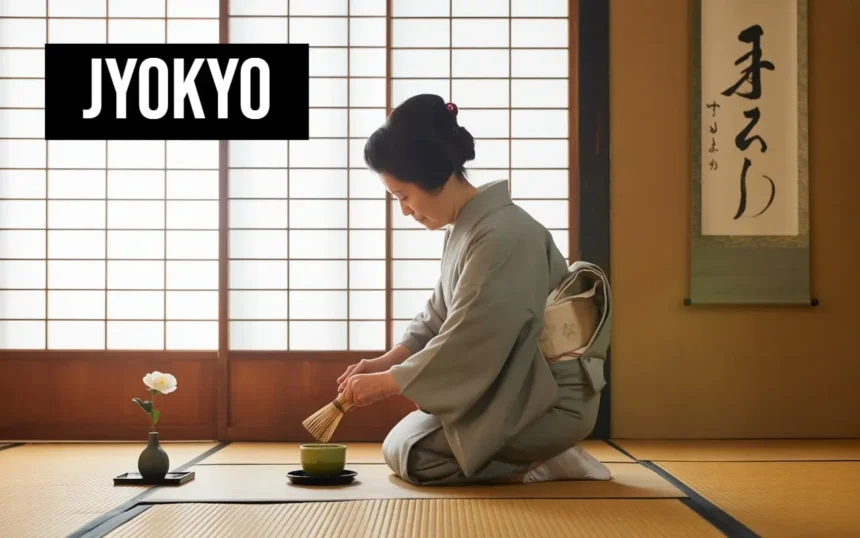In our hyper-connected world, we are constantly bombarded by sound. The ping of a notification, the hum of traffic, the relentless stream of music and podcasts—our auditory landscape is often one of noise pollution. In response, many seek solace in silence. But what if the answer isn’t less sound, but better sound? This is the premise of Jyokyo a subtle yet powerful Japanese concept that translates simply to “situation” or “circumstance,” but carries a much deeper meaning for the conscious listener.
Jyokyo is the art of intentional auditory filtering. It is the practice of actively choosing sounds that enhance a specific environment, mood, or activity. It’s not about blocking out the world, but about curating it. Unlike simply playing background music, Jyokyo is a mindful practice of aligning sound with purpose to create harmony and improve focus, relaxation, or social atmosphere.
More Than Background Noise
The key to understanding Jyokyo is to recognize its intentionality. Where many of us might put on a random playlist, a person practicing Jyokyo asks: “What sound is appropriate for this situation?”
- In a café: The gentle clinking of cups and the low murmur of conversation isn’t seen as a distraction, but as a beneficial “ambient sound” that can aid concentration—a phenomenon known as the “coffee shop effect.” Practicing Jyokyo here means accepting and even appreciating this soundscape for its productivity-boosting qualities.
- While working or studying: This might involve listening to instrumental music, ambient soundscapes (like rain or forest sounds), or binaural beats. The chosen sound isn’t for active listening; its purpose is to create an auditory bubble that masks more jarring interruptions, allowing for deeper flow states.
- For relaxation: Jyokyo would dictate the choice of calming sounds—perhaps the slow, resonant notes of a koto, the sound of waves, or complete silence, if that is what best serves the situation of winding down.
- During a social gathering: The careful selection of music that facilitates conversation—not too loud, not too intrusive, but setting a comfortable tone—is an application of Jyokyo.
The Cultural Roots of Jyokyo
Jyokyo finds its roots in broader Japanese aesthetic principles that emphasize harmony (wa 和), awareness, and respect for one’s environment.
- Ma (間): The Power of Space: The concept of Ma, which refers to the negative or empty space in art, music, and design, is crucial. In auditory terms, Jyokyo respects Ma. It’s not about filling every moment with sound, but about using sound to highlight the silence or to complement the space, allowing both sound and silence to coexist meaningfully.
- Mindfulness and Awareness: Practices like Zen Buddhism encourage a heightened awareness of the present moment. Jyokyo is an extension of this mindfulness into the auditory realm. It’s about being conscious of how sounds affect your mental state and proactively shaping your sonic environment.
How to Practice Jyokyo in Your Daily Life
Integrating Jyokyo doesn’t require special equipment, just a shift in mindset. Here’s how to start:
- Audit Your Soundscape: Take a moment to notice the sounds around you right now. Are they helpful or harmful to your current task? Are they causing stress or promoting calm?
- Define Your Intent: Before turning on any sound, ask: “What is my goal?” Is it to focus, to relax, to energize, or to create a welcoming atmosphere?
- Curate with Purpose: Choose your audio based on your intent.
- For Deep Work: Try lo-fi beats, classical music, or ambient soundscapes.
- For Relaxation: Opt for nature sounds, gentle piano, or guided meditations.
- For a Pleasant Atmosphere: Choose jazz, acoustic music, or anything that adds to the environment without demanding attention.
- Embrace Quality: Where possible, use good speakers or headphones to appreciate the nuance of the sound, reducing the fatigue that can come from compressed, low-quality audio.
- Know When to Use Silence: The most appropriate Jyokyo for a situation is sometimes no sound at all. Practice discerning when silence is the most valuable soundscape.
The Antidote to Auditory Overload
In an age of sensory overload, Jyokyo offers a refined and practical philosophy. It moves us from being passive recipients of noise to becoming active curators of our sonic environment. It’s a gentle reminder that the sounds we allow into our space have a profound impact on our well-being, productivity, and peace of mind.

